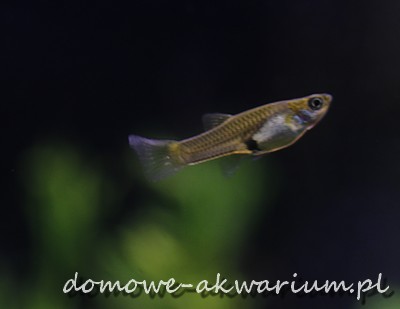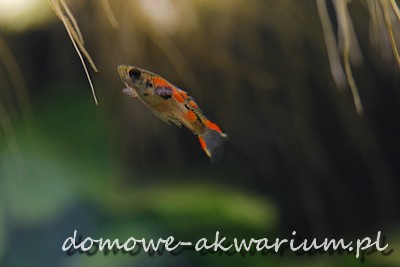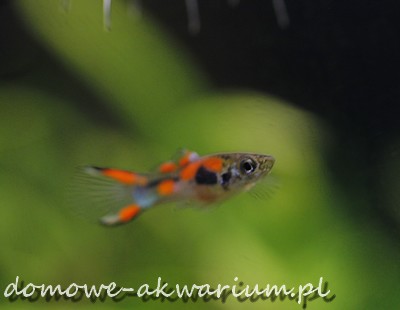
| Gatunek | Endler's Livebearer |
|---|---|
| Nazywany też | Endler Guppy |
| Nazwa łacińska | Poecilia Wingei |
| Rodzina | anabantoids |
| Występowanie | Ameryka Południowa |
| Długość | 2,5 - 4,0 cm |
| Temperatura | 24 - 30°C |
| Twardość wody | medium hard - hard |
| pH | 7,0 - 8,5 |
| Zbiornik | 40 L |
| Pokarm | gatunek wszystkożerny |
Endler's Livebearer, Endler Guppy, Swamp Guppy, Cumana Guppy, Orchid Endler, Black Bar Endler, Rainbow Endler
Originally a brackish water species, currently typical freshwater. In natural conditions, it inhabited coastal lakes - lakes that are bays, which were cut off from the open sea by sandbars. It is now found in the freshwater lagoons of Campoma and Buena Vista in Venezuela.
The colour of the male differs significantly from the colour of the female and is characterized by a silvery-olive colour with distinctive orange and black spots. The female's coloration is very modest - silvery/olive/yellowish, with transparent fins. Additionally, the female is noticeably larger and fuller in the belly areas than the male, and the male has a gonopodium - an external copulatory organ. Various colour varieties obtained through selective breeding of this species can be found available for purchase.

Very active and agile fish. Quite peaceful - only females may exhibit some territorialism. A schooling species, so it's worth getting a group of at least 6-8 individuals, with a predominance of females. This is a small-sized species that can be kept in a community aquarium only with small and peaceful species, e.g. neon tetras, small species of catfish or small species of characidae. Avoid keeping with common guppies (peacock's eye) - the fish will crossbreed.

The Endler's livebearer prefers a densely populated aquarium with free spaces for free swimming. Floating plants will be necessary - especially those species whose roots hang in the water column and systematic partial water changes.

An ovoviviparous species, which breeds spontaneously (without major external intervention) in a community aquarium. If we care about increasing the viability of the fry, we should breed fish in a separate tank - plants will be necessary or we can move the pregnant female to a separate aquarium. Males are very persistent in courting females, constantly displaying their fins and shaking them, and displaying their best colors - it has been proven that females choose males who have the most orange pigment. Fertilization is internal (gonopodium), and the embryos remain in egg sacs inside the mother's body (they feed on the supply from the yolk sac). The female's pregnancy lasts approximately 24 days. After this period, she gives birth to fully independent fry - about 8-15 pieces.